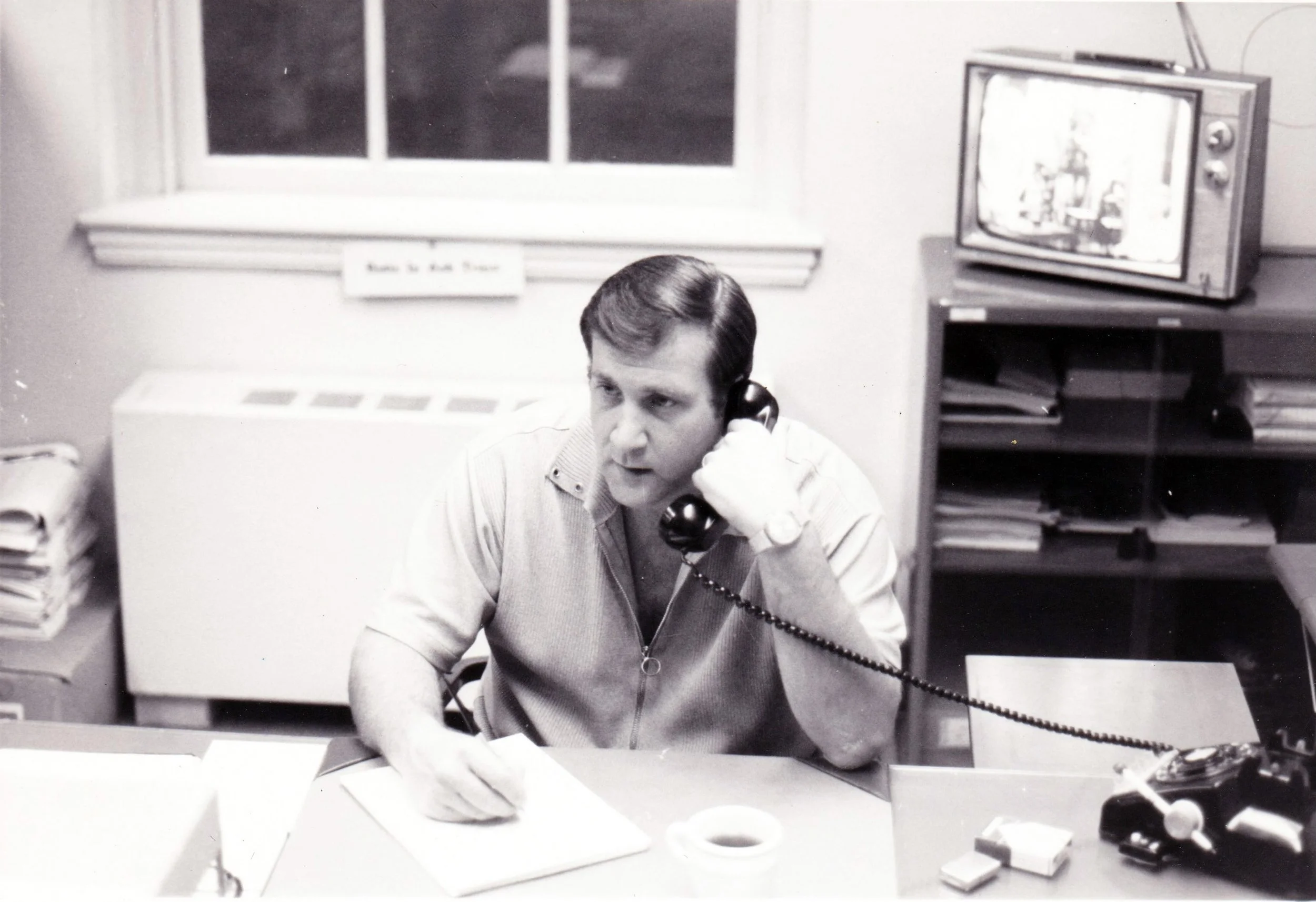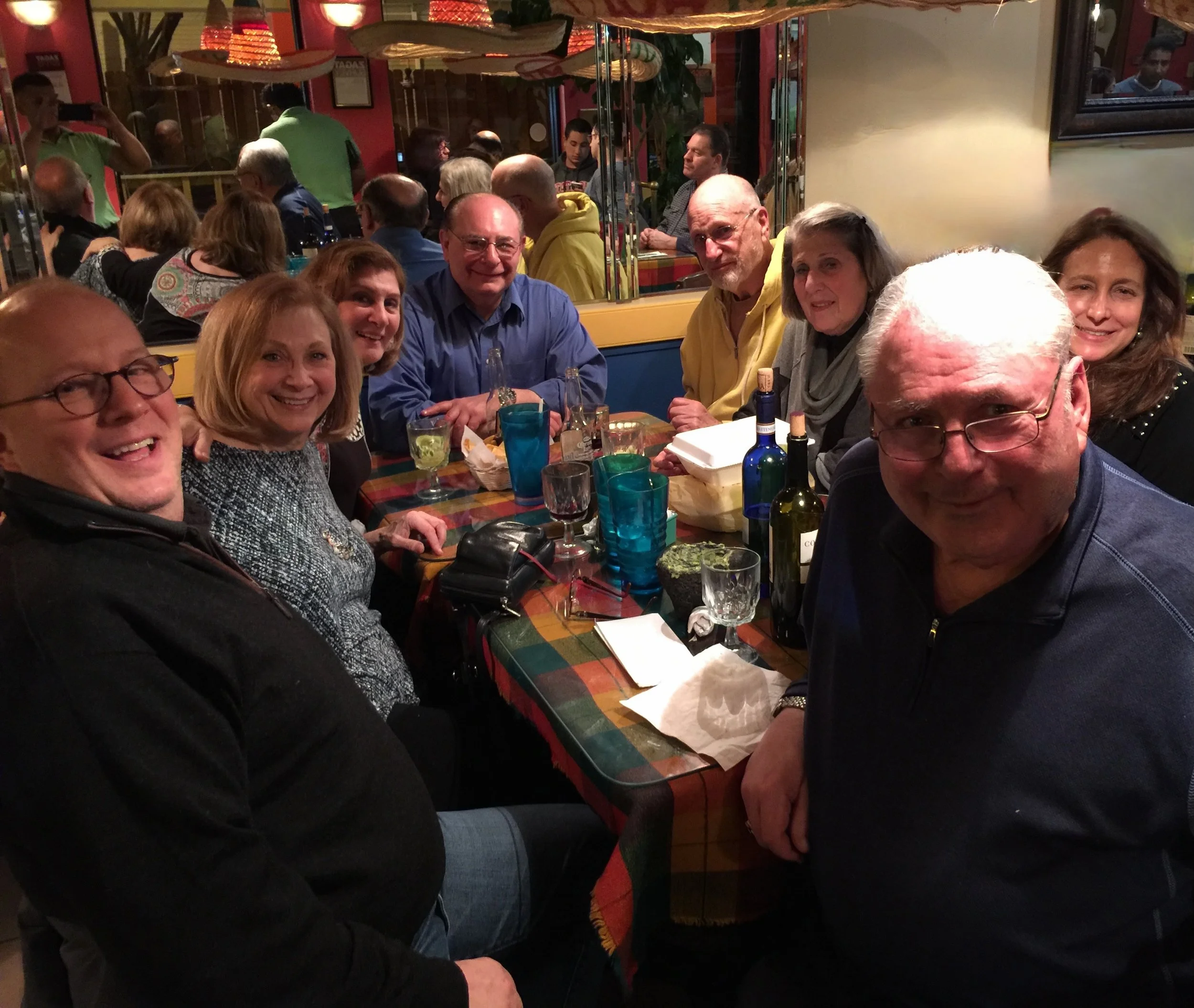The Midnight Phone Call
In this silent house at midnight, as I searched for traces of my ancestors, the phone began to ring. It felt like the past was calling me.
When I started my search, I didn’t have much to work with. I had a few names, a few foreign documents, a handful of stories, and a list of town names mentioned by relatives. None of these names showed up on any modern map. What could I possibly learn from these fragments of memory and my box of sepia photographs? I had to make sense of it all and find a way to move forward.
Thinking back to my college years, I remembered an assignment that to me couldn’t have been more boring. I needed to write a research paper based on a collection of original historical documents, copies of which were provided in a thick manila folder that couldn’t leave the library. History books were to be used only to provide general background. My eyes glazed over as I flipped through the file. There were copies of fliers, posters, and newspaper clippings from an early twentieth-century trade union trying to organize at a steel plant, a coal mine, or maybe it was a fabric mill. I didn’t really care, much less understand what the collection of documents was trying to tell me.
I was still bewildered after my first few looks at the collection, so I gathered a stack of history books and began a general study of the period. And then it happened. From these fragmented paper scraps, the story unfolded before me. I completed the assignment, thrilled to turn it in and to never have to think of it again. But here I am, only this time I have original originals, some in a language inching toward extinction. This is all I have to discover the story of my family, events that happened over a century ago, but that have influenced every element of my life.
Like looking at the surface of a tranquil pond and knowing that it conceals the life and death struggles of an entire world, I began to understand that the full drama of my family story remained hidden. As a teenager, I asked question after question, repeatedly looking at the pieces of paper that flowed through the family to me, trying to put the bits together in a way that made sense. I say that these bits and pieces flowed to me, but even when I was young, my enthusiasm for anything related to my family’s history made me the de facto family historian. I remember visiting one of my mother’s cousins and feeling a thrill when I saw a photograph of my great-grandmother for the first time. Seeing my excitement, she took the picture out of her photo album, insisting that she wanted me to have it. Over the years, more pictures and treasured documents followed. As my collection grew, so did my curiosity.
In the mid-1990s, we moved south to a stately brick house in the suburbs of Atlanta, and I became a stay-at-home mom. Without a job or friends in the area, I started organizing my files in our home office. Gazing out the tall windows, I watched as a great blue heron fished in our neighbor’s pond, and goats grazed on the grassy dam just beyond our fence. Was this what my grandparents dreamed life would be like in America, the “goldene medina,” the golden land?
In Eastern Europe, Jews were a people on the fringe and often desperately poor. They left Europe looking for the most basic things in life. One prospective immigrant, paraphrasing from the book of Genesis, said that he was seeking nothing more than “bread to eat and clothes to wear.” I wondered if poverty played a part in leading Dora away from her home and family, or if it was just the narrowness of the world that she was born into.
After two generations in America, my mother’s family was spread across the country, no longer keeping in touch. We were thriving economically, but I felt an ongoing restlessness. In chasing the American dream, I had become untethered from my past. How could I raise my two young boys to cope with the challenges of the future if I didn’t understand the lives and the struggles of my ancestors? And what would I tell them about the world my grandparents left behind and the people who filled the tales of my childhood? Starting with so little, I realized that the only way forward was to find other members of my scattered tribe and to join their stories with mine.
At the time, online resources for genealogy weren’t nearly as extensive as they are today, but started searching anyway. To my shock, after sitting at my home computer for just thirty minutes, I found the courthouse in New York where my paternal grandfather was naturalized. I dashed off a letter (in the mail, with a stamp) and in a few weeks, which seemed exceptionally quick at the time, I held in my hand a copy of his application to become a U.S. citizen. My father’s family is another story for another time, but this success spurred me on. I was addicted.
I can’t tell you how many loads of laundry went unwashed and how many dinners were served late. So many nights I stayed up almost till dawn, searching through lists, looking at names, seeking traces, and reviewing it all again to be sure I didn’t miss anything. I quickly learned that back then, traditional genealogy websites didn’t have much information about Jewish families that came to this country around the turn of the 20th century. Undaunted, I soon learned that just about every ethnicity has websites dedicated specifically to finding genealogical records.
For me, discovering JewishGen.org changed everything. JewishGen launched its website in 1995, billing itself as “. . . the global home for Jewish Genealogy.” Since the site was relatively new when I started using it, I couldn’t find anything about my family, but there was a wealth of information and even indexed records from Jewish communities across Europe. I registered my name and contact information at the site, and signed up for JewishGen’s Family Finder, where I posted all the surnames that I ever heard mentioned by my family. I hoped that some equally curious relation would see my posting and contact me.
It didn’t take long. One night shortly after I registered, the dinner dishes were still unwashed as I sat at the computer, my eyes losing focus while I pored over search results on the JewishGen website. Around midnight I was startled when my phone started ringing. I noticed the surname on the caller ID, Nemeth, Grandma Fannie’s maiden name and a name I hadn’t heard in a very long time. I froze. In this silent house at midnight, as I searched for traces of my ancestors, it felt like the past was calling me. I picked up the receiver.
“Hello, who is, this?” came a man’s voice from the other end of the phone. “Who is this?” I asked in return. He was clearly excited as he explained that his name was Herbie and he just saw my posting on JewishGen.
He asked how I was related to the Nemeths. I’m embarrassed to admit that in my shock, all I could think of to say was, “Do you know what time it is?”
He paused for a moment, clearly embarrassed. When he finished apologizing, I told him I understood his excitement and we agreed to talk the next morning. I hung up the phone, my heart racing. I pulled out my notes on the family and there he was, at the bottom of the page in the margin, all the way to the right. Herby Nemeth was Fannie and Dora’s nephew, the youngest child of their youngest sibling. Even though he was my mother’s first cousin, they were almost a generation apart in age. I probably should have stayed on the phone with Herby, I was too excited to get any sleep that night.
The next morning when Herby called me back, we had a lot of catching up to do. Herby was retired from the Philadelphia police force. Given the family’s past criminal enterprises, we both had a laugh about the irony. Herby remembered me, but only as a baby, since he and I were born so many years apart. Despite our age difference, our mutual curiosity about Dora and the Nemeth family drew us together. I didn’t realize it then, but in searching for Dora and my family’s journey, I was creating a journey of my own.
Herby put me in touch with our Cousin Hesh, who was always referred to by one of my uncles as “my wise cousin Hesh.” Herby, Hesh and I began emailing daily, using modern technology to re-establish old and almost forgotten family ties. Cousin Hesh had been writing down his memories of the family - vignettes that breathed life to the people in my sepia photographs. He generously shared his memoirs and stories with us, and we devoured them, reading them over and over and discussing them via email and sometimes over the phone.
Hesh suggested that I contact his niece, Lois who was also eager to connect with family. Lois’s grandmother, Sura Leah, was Grandma Fannie and Dora’s sister, born in-between the two. Hesh was wise indeed because Lois and I went to work immediately, locating as many cousins as we could. Together, we gathered the exiles and reconnected the descendants of Hudia and Meszulim, our great-grandparents and most distant named ancestors. I’m not sure why, but Lois and I focused on the ladies, calling ourselves “Hudia’s Girls.” Having raised five daughters herself, Hudia would have felt right at home.
Fast forward twenty years. We’re out to dinner at a Cuban restaurant, eight of us sitting around a big table, drinking pitchers of sangria when Lois turned to me and smiled. “I’m so glad we have this.”
“What do you mean?” I asked.
“All of this,” and she spread her hands to indicate all of us sitting around the table.
I knew what she meant. Cousins, descendants of the same great-grandparents, together, laughing and sharing our lives as if all the years, the deaths, divorces, dislocations, and relocations had never separated us.
“It’s because of us,” she said.
Yes, yes, it is.
2016 - Me, far right, hard at work researching my family.


